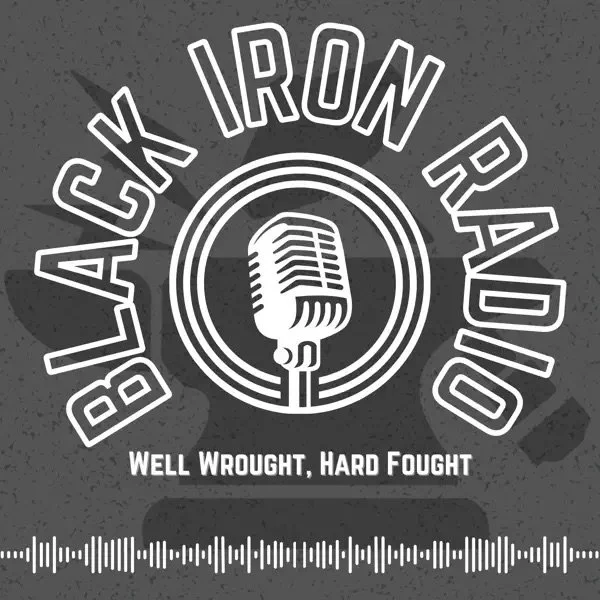Micronutrients 101: The Unsung Heroes of Your Nutrition
In this blog post, we’re diving into the biggest takeaways from our latest Black Iron Radio episode all about micronutrients—what they are, why they matter, and how they can completely change the way you feel. While macros tend to steal the spotlight, micronutrients are the behind-the-scenes heroes that keep your brain sharp, your energy up, your sleep solid, and your immune system strong. Coaches Amanda, Sabrina, and Lauren (one of our RDs) break down the difference between fat- and water-soluble vitamins, signs of deficiency, when to supplement, and how to boost your intake without overcomplicating your life.
BLACK IRON RADIO EP. 233: MICRONUTRIENTS 101: THE UNSUNG HEROES OF YOUR NUTRITION
Macronutrients might be the main character in most nutrition conversations, but if you’re serious about your health, performance, or just feeling like a functioning human, you need to care about the micros. Amanda, Sabrina, and Lauren talk all things micronutrients: what they are, why they matter, and how they affect everything from your energy and mood to your recovery and immune system. They break down fat-soluble vs. water-soluble vitamins, who’s most at risk for deficiencies, when supplements make sense (and when they’re a waste), and how to make getting enough micronutrients way less complicated than it sounds. This one’s for anyone who wants to go beyond macros and start feeling their best from the inside out.
📲 Listen & Subscribe: Apple Podcasts | Spotify
When it comes to nutrition, macronutrients tend to get all the love. Protein, carbs, and fat are the headline-grabbers—fueling our bodies, building muscle, and keeping us moving. But lurking in the background, like the quiet overachievers they are, micronutrients are putting in major work to keep your body functioning, thriving, and feeling its best.
In this episode of Black Iron Radio, coaches Amanda, Sabrina, and Lauren (one of our RDs) dove into the often-overlooked but critically important world of micronutrients—breaking down what they are, why they matter, and how to get more of them into your diet.
So, What Are Micronutrients?
Micronutrients are the vitamins and minerals your body needs in smaller amounts than macronutrients, but don’t let the “micro” fool you. They’re essential for everything from brain function and hormone regulation to energy production, sleep quality, immune health, and even your mood.
Without them, your body’s systems can’t do their jobs properly—even if you’re eating enough calories or hitting your macros. You can think of calories as the car, macros as the gas, and micros as the oil. You might be able to drive for a while without changing the oil, but eventually, your engine’s going to protest.
Meet the Micronutrient MVPs
Fat-Soluble Vitamins (A, D, E, and K)
These require fat for absorption and are stored in the body’s fat tissue (and sometimes the liver). Because they stick around, there’s a risk of toxicity if over-supplemented.
Vitamin A – Eye health, immune support (found in carrots, sweet potatoes, liver)
Vitamin D – Bone health, hormone regulation (sunlight, fatty fish, fortified dairy)
Vitamin E – Skin and antioxidant protection (nuts, seeds, spinach)
Vitamin K – Blood clotting, bone health (leafy greens, fermented foods)
Water-Soluble Vitamins (B-Vitamins + C)
These don’t stick around—excess is excreted in urine, so you need a steady supply.
B Vitamins (1–12) – Energy metabolism, brain health (whole grains, eggs, meat)
Vitamin C – Immune support, collagen production (citrus fruits, bell peppers, strawberries)
Key Minerals
Calcium – Bone and muscle function (dairy, leafy greens, almonds)
Magnesium – Sleep, relaxation, energy metabolism (dark chocolate, nuts, legumes)
Potassium – Fluid balance, heart health (bananas, avocados, potatoes)
Iron – Oxygen transport, energy (red meat, spinach, lentils—bonus points for pairing with vitamin C to enhance absorption)
Zinc – Immune function, skin health (shellfish, meats, pumpkin seeds)
Iodine – Thyroid function (iodized salt, seaweed, dairy)
Common Deficiencies & Who’s at Risk
Even if you’re eating enough calories, you can still be deficient in key micronutrients. Some populations are more at risk than others:
Vegans & Vegetarians – Often low in B12, iron, and zinc
Women – Higher risk for iron and calcium deficiencies
Older Adults – Can struggle with vitamin D and B12 absorption
Athletes – Lose electrolytes through sweat, may need more magnesium and sodium
People eating super “clean” – Ironically, limited food variety can mean limited micronutrients
And it’s not always obvious—subclinical deficiencies might not cause scurvy or rickets, but they can absolutely cause fatigue, brain fog, poor recovery, and low energy. That’s because your body uses micronutrients to keep essential systems running. Thanks to something called triage theory, your body prioritizes short-term survival over long-term health. That means the little nutrients you do get are shuttled to critical processes first—not muscle growth, training adaptation, or hormone balance.
TL;DR: you can’t build a strong, vibrant body on macros alone.
Signs You Might Be Deficient
Fatigue
Brain fog
Hair loss or brittle nails
Weak immune system
Muscle cramps or joint pain
Sleep disruptions
If this sounds like you, it might be time to look past your macro tracker and into your produce drawer.
How to Boost Your Micronutrient Intake
Here’s how our coaches help clients up their micronutrient game—without turning it into a chore:
Eat the rainbow. Aim for colorful meals—reds, oranges, greens, purples. Each hue packs a unique mix of nutrients.
Set a gram goal. Try 500g of fruits and veggies a day. It’s simple, visual, and builds volume into meals (great for satiety).
Add 1–3 colors to every meal. Keep it flexible but intentional.
Lean into convenience. Frozen veggies, seasonal produce, and pre-cut options are all fair game.
Try new things. Didn’t grow up eating veggies? Start small. Blend them into sauces or smoothies, or try roasting them with seasonings you love.
What About Supplements?
They have a time and a place, especially for:
People with restricted diets
Individuals with absorption issues
Those on medications (like birth control) that deplete nutrients
Pregnant or breastfeeding individuals
Athletes with elevated nutrient demands
That said, supplementation should supplement a solid foundation—not replace it. If you haven’t eaten a vegetable in three years, your first step isn’t a greens powder—it’s a carrot. Always talk to your coach (and doctor!) before diving into a new supplement regimen.
Micronutrients and Mental Health
One of the most under-discussed benefits of a micronutrient-rich diet? Mood.
Micronutrients like B vitamins, magnesium, and zinc are critical co-factors in neurotransmitter production (think dopamine, serotonin, melatonin). That means they directly affect your sleep, stress resilience, attention span, and motivation.
As Amanda put it: “Physiology follows psychology.” If your brain isn’t being nourished, your body—and your goals—will struggle to keep up.
TL;DR
You can hit your calorie and macro goals and still feel like trash if your micronutrient intake isn’t up to par. A diet built on real, whole, colorful foods isn’t just a “nice to have”—it’s a must for long-term health, high performance, and next-level energy.
Not sure where to start? That’s what your coach is here for.
🎙️ WANT MORE? SUBSCRIBE TO BLACK IRON RADIO!
If you enjoyed this conversation, check out more episodes of Black Iron Radio, where we cut through the noise and give you real, no-BS advice on feeling, performing, and looking your best. Each week we share practical nutrition, training, and wellness strategies and tips to help you succeed.
📲 Listen & Subscribe: Apple Podcasts | Spotify


